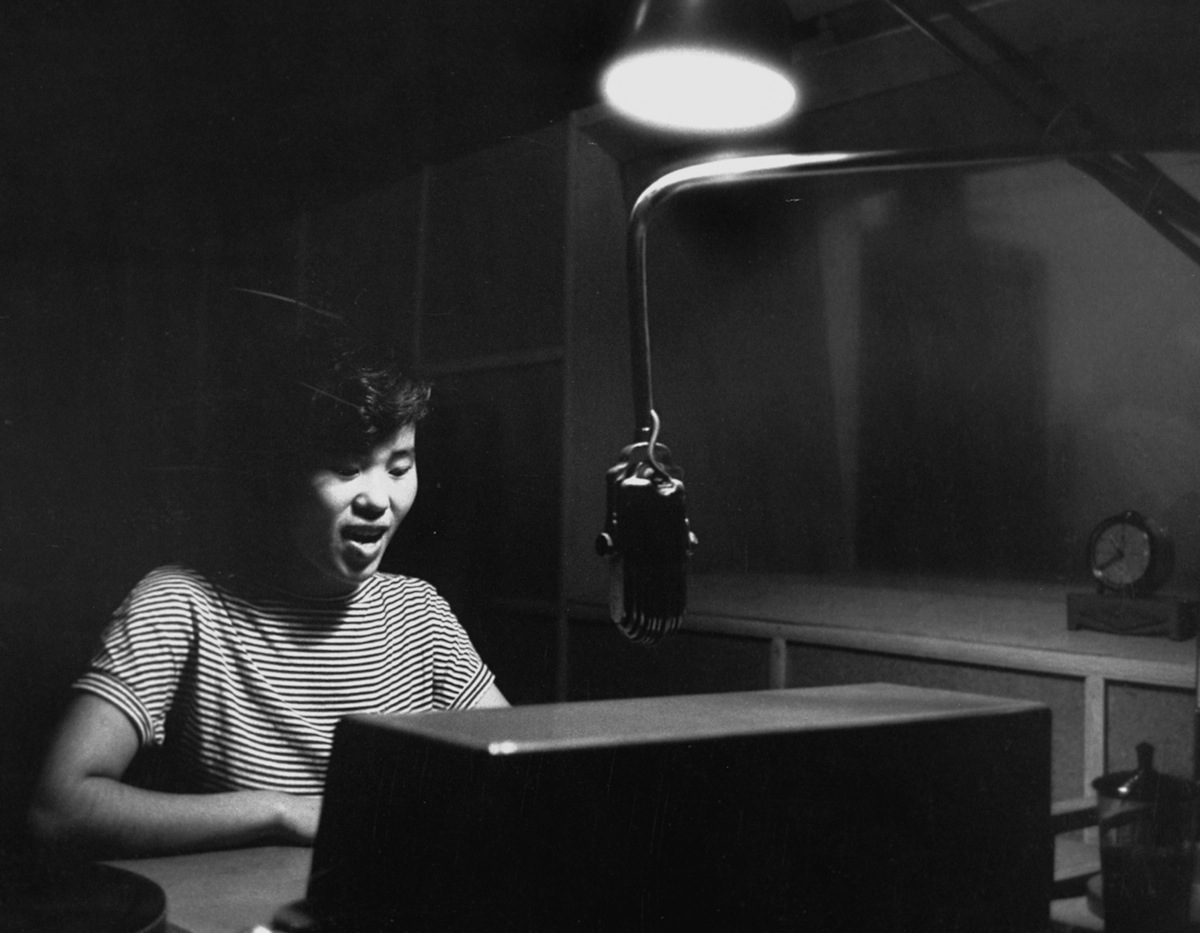
Was Tokyo Rose a charming radio host or a vicious propagandist who committed treason from the DJ booth? Historians still haven’t settled the matter. She was convicted in 1949 but received an official pardon on this day, Jan. 19, in 1977, when the case for treason appeared less clear-cut than it had in the bitter years after World War II.
Iva Toguri d’Aquino was born in the U.S. to Japanese parents and, by all early accounts, she grew up as a devoted patriot. She earned a degree in zoology from UCLA in 1940 and had begun doing graduate work there when her life took a fateful turn. She visited Japan — either to visit a sick aunt or to study medicine, depending on whether you believed her account or the government’s — and became stuck there when war broke out.
The trouble began when she took a job as a wartime DJ for Radio Tokyo, playing popular, if sappy, American music, punctuated by banter that was either playfully entertaining or a deliberate attempt to undermine the morale of U.S. troops — again, depending on whose version you believe. Although she broadcast by the name of “Orphan Ann,” d’Aquino was more popularly known as “Tokyo Rose.”
The U.S. Army’s own analysis of her program found that it had never hurt morale — if anything, according to the FBI, it might have boosted soldiers’ spirits. But when the war ended and d’Aquino sought permission to return to the U.S., the public outcry was so strong, and so many soldiers reported memories of damning statements she’d made, that she was tried for treason and found guilty on one count, for “[speaking] into a microphone concerning the loss of ships,” per the FBI. She served just over six years of a 10-year sentence.
The key problem with her treason case is that the nickname “Tokyo Rose” may in fact have signified someone or something other than d’Aquino herself, according to Ann Elizabeth Pfau, the author of Miss Yourlovin: GIs, Gender, and Domesticity During World War II. It may have been the conflation of multiple English-speaking women on Japanese radio, some of whom were more subversive than others, or, Pfau asserts, it may have been entirely the invention of American servicemen who channeled their own fears and anger into the disembodied voice on the radio. Pfau writes:
Like all legends, Tokyo Rose has basis in historical fact. Toguri’s “Orphan Ann” segments were sandwiched between propaganda-tinged news, skits, and commentary. However, the bare facts of Japanese broadcasts do not account for the radio personality so many servicemen talked about, wrote about, and still remember. Rather, this legend was born of emotions, like anger, alienation, and anxiety — feelings about the war, the military, and American civilians that soldiers were otherwise unable or unwilling to acknowledge.
While one veteran testified that d’Aquino told American forces in Saipan that the island was heavily mined and they would be “blown sky high” unless they evacuated, the worst threat in the extant recordings and transcripts of her broadcasts was — per Pfau — that she would “ ‘creep up and annihilate them with [her] nail file’ while she ‘lull[ed] their senses’ with a Victor Herbert waltz, ‘Kiss Me Again.’ ”
Read a 1976 account of the petition for her pardon, here in TIME’s archives: By Any Other Name
Read a 1944 report on Tokyo Rose’s popularity among soldiers, here in TIME’s archives: By Any Other Name
More Must-Reads from TIME
- Donald Trump Is TIME's 2024 Person of the Year
- Why We Chose Trump as Person of the Year
- Is Intermittent Fasting Good or Bad for You?
- The 100 Must-Read Books of 2024
- The 20 Best Christmas TV Episodes
- Column: If Optimism Feels Ridiculous Now, Try Hope
- The Future of Climate Action Is Trade Policy
- Merle Bombardieri Is Helping People Make the Baby Decision
Contact us at letters@time.com